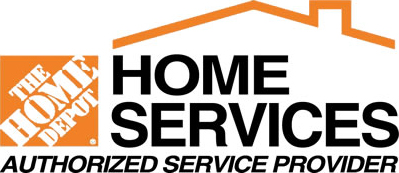How to Know What Size Water Softener To Buy
Sep 25, 2024How to Know What Size Water Softener to Buy for Your Home
If you’re thinking about installing a water softener, choosing the right size is important. A properly sized water softener can help tackle hard water issues, like soap scum, dry skin, and scale buildup on appliances, making life easier and protecting your home’s plumbing. To make the best choice, consider your water’s hardness, household water use, and a few other key factors.
Figure Out How Hard Your Water Is
Water hardness comes from minerals like calcium and magnesium. Too many of these minerals can cause problems in your home. The hardness level is measured in “grains per gallon” (GPG). You can easily test your water with a home test kit or contact your local water provider to get this number. The higher the number, the harder your water is.
Know How Much Water You Use
On average, each person in a home uses about 75 gallons of water daily. To estimate your household’s daily water use, multiply 75 by the number of people in your home. For example, if four people live in your house, your total daily water use is around 300 gallons (75 gallons x 4 people).
Calculate the Size You Need
Multiply your daily water use by the hardness level. This will tell you how much “softening” your water needs. For example, if your water hardness is 10 GPG and your family uses 300 gallons a day, you need a softener that can handle 3,000 grains each day (300 gallons x 10 GPG = 3,000 grains).
Pick a Softener That Lasts
Water softeners have different sizes based on how many “grains” they can handle before needing to flush out (or “regenerate”) the minerals. Common sizes range from 24,000 to 64,000 grains. To minimize maintenance, choose a softener that can handle at least a week’s worth of softening. In our example, you’d look for a softener with a 21,000-grain capacity (3,000 grains x 7 days).
Consider Salt Types
Water softeners use salt to clean out the minerals they collect. There are three main salt types:
- Rock Salt: It’s the cheapest but can leave more residue, which means more cleaning.
- Solar Salt: A bit purer and works well for most homes.
- Evaporated Salt: The purest option. It’s more expensive but leaves the least residue, so your softener will need less maintenance.
Think About Regeneration Frequency
A larger softener will need to regenerate less often, saving salt and water in the long run. High water use homes may benefit from a larger capacity to avoid constant refills.
Consider Water Usage Patterns
If you have a big family or frequently use water-heavy appliances (like dishwashers or washing machines), you might need a larger water softener to keep up with your household’s needs. Smaller households usually manage fine with a smaller unit.
Check the Space for Installation
Make sure you have enough room to install the softener near your main water line, with access to a drain. Measure the space before purchasing to ensure a proper fit.
Find Out More About Home Water Softeners
Choosing the right water softener size comes down to understanding your water’s hardness, your household’s water use, and selecting a system that fits your needs. By considering factors like salt type, usage patterns, and space, you’ll find a water softener that works efficiently without requiring too much upkeep. This way, you can enjoy softer water and avoid the hassle of frequent maintenance or repairs.
For answers to other common questions about water softeners, please visit our FAQ page.
At Miami Water and Air, we are committed to your comfort and satisfaction. We offer free, in-home water tests, tailored solutions, next-day installations, and the industry’s best warranties. If you need a water softener for your home or business in the Miami, FL area, you can count on our team to provide the best products and services.
Contact us today for more information.








